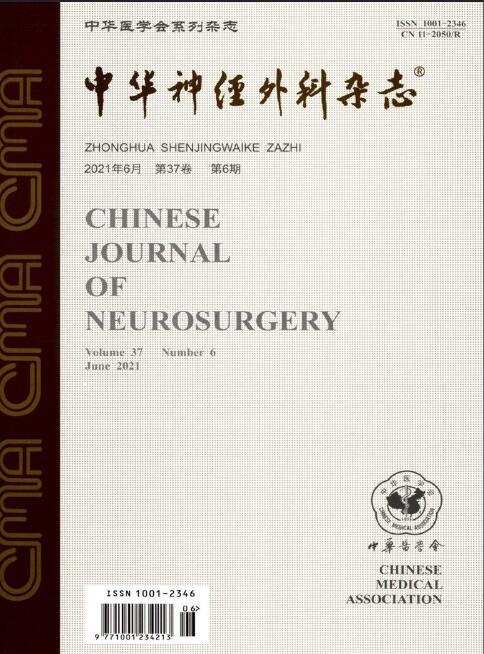Relationship between early cranioplasty and outcomes of traumatic brain injury in adult patients
Q4 Medicine
引用次数: 0
Abstract
Objective To investigate the effects of early cranioplasty post decompressive craniectomy on the outcomes of traumatic brain injury in adult patients. Methods A retrospective analysis was conducted on the clinical data of 72 adult postoperative patients with traumatic brain injury who were admitted to Department of Neurosurgery, Zhongshan Hospital, Xiamen University from January 2015 to June 2017. According to the timing of cranioplasty, the patients were divided into early group (≤3 months after operation, 30 cases) and conventional group (>3 months after operation, 42 cases). The differences in the Glasgow outcome scale (GOS) score, Karnofsky performance scale(KPS) score and mini-mental state examination(MMSE) score between the two groups were compared at 6 months postoperatively, and the rates of postoperative complications were also compared. Results Compared with the conventional group, the GOS change values [the median(lower interquartile, upper interquartile): 1.0(1.0, 1.0)points vs. 1.0(0, 1.0)points], postoperative KPS (70.3±23.3 points vs. 58.8±17.3 points) and MMSE scores (21.0±7.7 points vs. 17.5±6.2 points) were significantly improved in the early group, and the differences were statistically significant (all P 0.05). Conclusion Compared with cranioplasty at 3 months post operation, early cranioplasty does not seem to increase the incidence of postoperative complications and has more significant improvement in the outcomes of patients. Key words: Craniocerebral trauma; Cranioplasty; Decompressive craniectomy; Early; Prognosis成人颅脑损伤早期颅骨成形术与预后的关系
目的探讨颅脑减压术后早期颅骨成形术对成人颅脑损伤预后的影响。方法回顾性分析2015年1月至2017年6月厦门大学中山医院神经外科收治的72例成人颅脑损伤术后患者的临床资料。根据开颅时间分为早期组(术后≤3个月,30例)和常规组(术后≤3个月,42例)。比较两组患者术后6个月格拉斯哥结局量表(GOS)评分、Karnofsky表现量表(KPS)评分和最小精神状态检查(MMSE)评分的差异,并比较两组患者术后并发症发生率。结果与常规组比较,早期组GOS变化值[中位数(下四分位间、上四分位间)1.0(1.0,1.0)分vs. 1.0(0,1.0)分]、术后KPS(70.3±23.3分vs. 58.8±17.3分)、MMSE评分(21.0±7.7分vs. 17.5±6.2分)均显著改善,差异均有统计学意义(均P 0.05)。结论与术后3个月颅骨成形术相比,早期颅骨成形术似乎没有增加术后并发症的发生率,对患者的预后有更明显的改善。关键词:颅脑损伤;头颅成形术;得到颅骨切除术;早期的;预后
本文章由计算机程序翻译,如有差异,请以英文原文为准。
求助全文
约1分钟内获得全文
求助全文
来源期刊

中华神经外科杂志
Medicine-Surgery
CiteScore
0.10
自引率
0.00%
发文量
10706
期刊介绍:
Chinese Journal of Neurosurgery is one of the series of journals organized by the Chinese Medical Association under the supervision of the China Association for Science and Technology. The journal is aimed at neurosurgeons and related researchers, and reports on the leading scientific research results and clinical experience in the field of neurosurgery, as well as the basic theoretical research closely related to neurosurgery.Chinese Journal of Neurosurgery has been included in many famous domestic search organizations, such as China Knowledge Resources Database, China Biomedical Journal Citation Database, Chinese Biomedical Journal Literature Database, China Science Citation Database, China Biomedical Literature Database, China Science and Technology Paper Citation Statistical Analysis Database, and China Science and Technology Journal Full Text Database, Wanfang Data Database of Medical Journals, etc.
 求助内容:
求助内容: 应助结果提醒方式:
应助结果提醒方式:


